In case tou missed it! We have uploaded the ‘In Luce Ambulemus’ talks from Hanjo Berressem on our YouTube channel. Now available for your viewing pleasure.
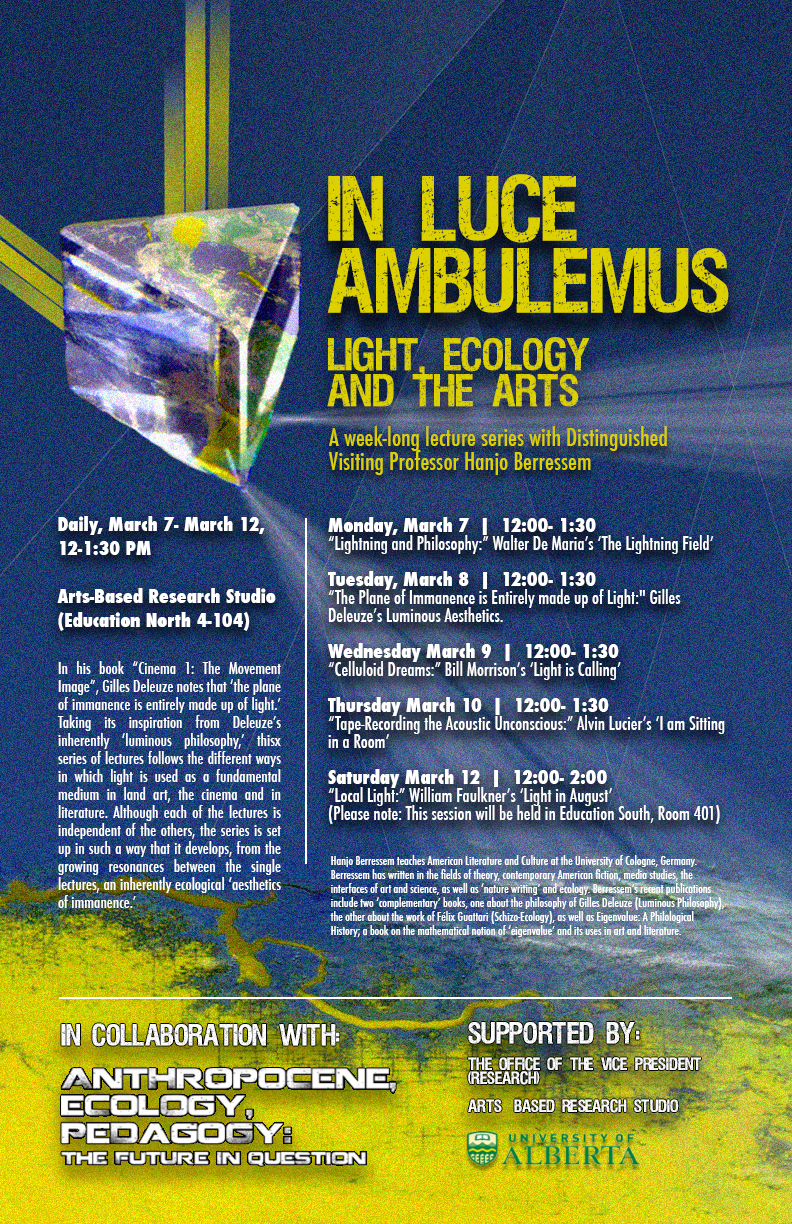
In case tou missed it! We have uploaded the ‘In Luce Ambulemus’ talks from Hanjo Berressem on our YouTube channel. Now available for your viewing pleasure.

As a wrap-up to the “Anthropocene, Ecology, Pedagogy” Series, please join us for this a special lecture with visiting professor Dr. Hanjo Berressem.
Friday, March 11, 4-5:30 (Reception to Follow)
University of Alberta, Arts-Based Research Studio (Ed North 4-104)
“All Things Considered: Immanence, Ecology and Education”
The lecture draws on the philosophy of Gilles Deleuze and the ‘ecosophy’ of Félix Guattari. Asking the question of ‘how to be adequate to the world,’ it develops a logic of being different from but simultaneously being a part of that from which one is different. In a second step, it uses that logic to contour an ‘ecology of immanence’ as well as a ‘didactics of immanence.’
Speaker Biography
Hanjo Berressem teaches American Literature at the University of Cologne, Germany. His publications include Pynchon’s Poetics: Interfacing Theory and Text (U of Illinois P) and Lines of Desire: Reading Gombrowicz’s Fiction with Lacan. (Northwestern UP). He has edited, together with Leyla Haferkamp, Deleuzian Events: Writing|History (Lit, 2009) and site-specific: from aachen to zwölfkinder – pynchon|germany (Pynchon Notes, 2008). He has just completed two ‘complementary’ books, one about the philosophy of Gilles Deleuze (Luminous Philosophy), the other about the work of Félix Guattari (Schizo-Ecology), as well as Eigenvalue: A Philological History; a book on the mathematical notion of ‘eigenvalue’ and its uses in art and literature.
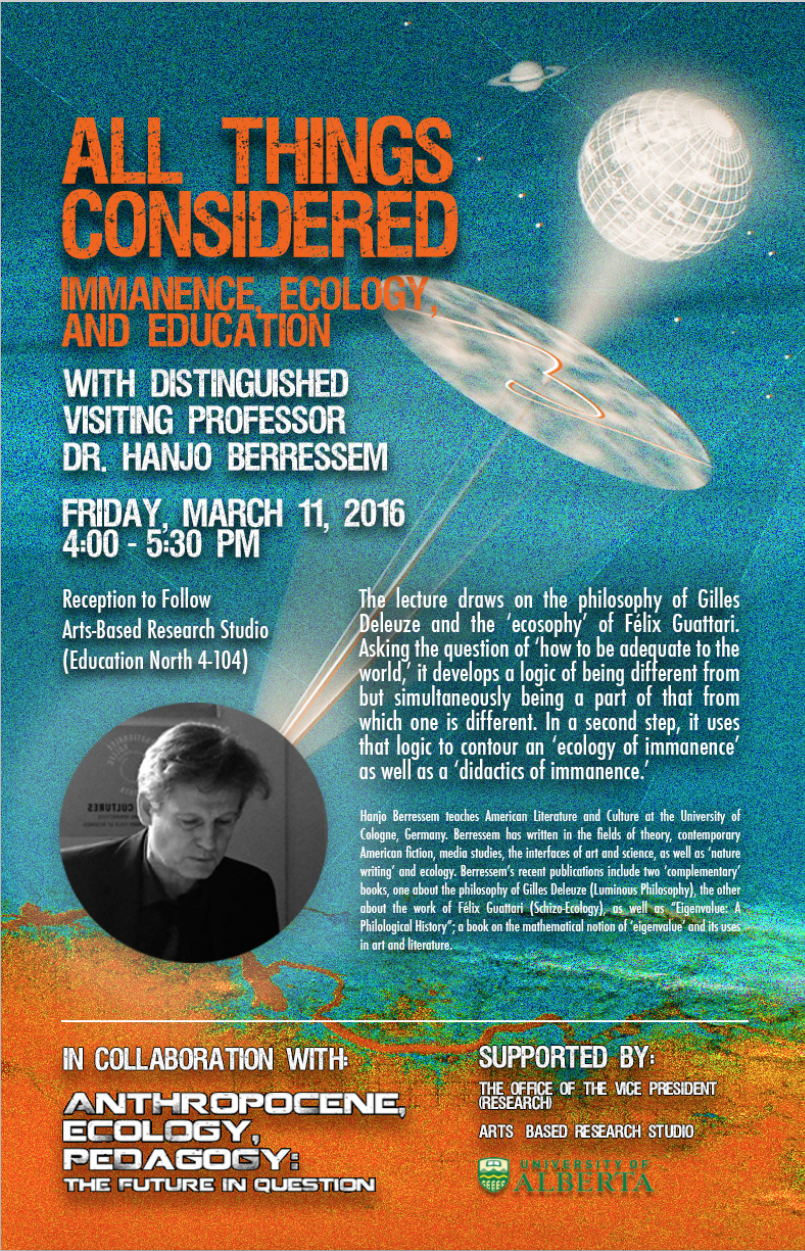
“Sounding the Anthropocene” Symposium, March 11, 9-3:30, Arts-Based Research Studio (Ed North 4-104).
SESSION 4, 2:30-3:30 PM: “The Meaning of Treedom: Mass Extinction and the Silent Things” with Sha LaBare
Sha LaBare (PhD, History of Consciousness 2010) is a science fiction scholar particularly interested in radical ecological ethics at and after the end of the world as we know it. His writing and teaching focus on global warming, multispecies becomings, the ecology of everyday life, and imagining alternatives to the world that is alas the case.
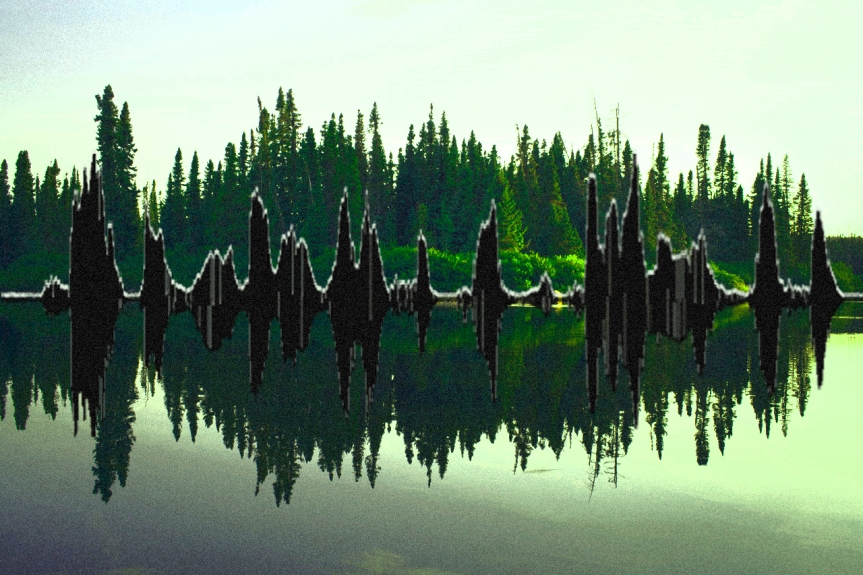
“Sounding the Anthropocene” Symposium, March 11, 9-3:30, Arts-Based Research Studio (Ed North 4-104).
SESSION 3, 1:30-2:30 PM: “Soundscape Interventions” with Scott Smallwood
In this talk, Edmonton sound artist and professor Scott Smallwood, will discuss his artistic practice in relation to soundscape interventions.
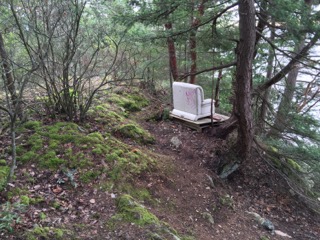
Speaker Biography
Scott Smallwood was born in Dallas, Texas, and grew up at 10,000 feet in elevation in the Colorado Rockies. At the age of 10, his father gave him a cassette tape recorder, and ever since he has been fascinated by the possibilities of recorded sound. He listens and makes recordings and observations of places and objects, and draws the resulting sounds into compositions and performances. Ranging from sonic photographs, studio compositions, instrumental pieces, sound installations, and improvisations, the resulting pieces are often textural, always mindful of space and subtlety.
As a performing artist, Smallwood has performed as a percussionist, pianist, and electronic musician on laptops, synthesizers, noise generators, and handmade electronic instruments. He has performed with a variety of improvisors including Cor Fuhler, Joe McPhee, Phil Gelb, Todd Reynolds, John Butcher, Mark Dresser, and Pauline Oliveros. As a composer, he has written works for small and large ensembles, including recent works for Continuum Ensemble of Toronto, the Nash Ensemble of London, and the New York Virtuoso Singers.
His work has been presented worldwide, including recent presentations at the Stone in NYC, the Burning Man Festival in Black Rock City, Nevada, the The Hong Kong Arts Centre, and the Seedspace Gallery in Nashville. His work has been released on Autumn Records, Deep Listening, Wowcool, Simple Logic, Static Caravan, and others.
From 1997 until 2003, he worked as a studio engineer, faculty member, and technical director in the electronic arts program at Rensselaer Polytechnic Institute. He holds music degrees from Seattle Pacific University, Miami University, Peabody Conservatory, and Princeton University, where he also held postdoctoral research associate position, working with the legendary Princeton Laptop Orchestra (PLOrk). He currently lives in Edmonton, Alberta, where he is an assistant professor of composition at the University of Alberta, and where he also serves as Director of the Humanities Computing MA program.
“Sounding the Anthropocene” Symposium, March 11, 9-3:30, Arts-Based Research Studio (Ed North 4-104).
SESSION 2, 11:00-12:30 AM: “Sound Without Organs: Inhuman Refrains & the Speculative Potential of a Cosmos-Without-Us” with Jessie Beier and Jason Wallin
A day before the scheduled landing of its probe on the surface of Comet 67P/Churyumov-Gerasimenko, the European Space Agency’s Rosetta recorded a mysterious signal emanating from the extraterrestrial object (O’Neill 2014). Registering a low frequency oscillating signal in the 40-50 millihertz range, mission scientists concluded that Comet 67P was ‘singing’. Accelerated 10,000 times for human audibility, this ‘song’ has been likened to the ambient works of Sigur Rós, the absurdist pop of Bjork, or more remotely, the trilling of Hollywood’s hunter-alien Predators (Coplan 2014). Correlates aside, the electromagnetic sonority of Comet 67P registered by Rosetta poses something far weirder in its manifestation of an occulted cosmic sensibility. More specifically, the singing of Comet 67P not only suggests a ‘sonority’ beyond the geospatial and temporal territories of ‘man’, but of an inhuman improvisation of dust, ice, and planetary bodies antithetical to the philosophical conceit that reality exists as it does for a human subject (Thacker 2011, 2015a, 2015b). As scientists have discovered, Comet 67P is not the only object ‘singing’ against the abyss of deep space. Numerous probes including NASA’s Voyager have recorded the electromagnetic oscillations of extraterrestrial planetary objects, revealing a cosmos replete with a diversity of imperceptible inhuman sonorities. It is along this trajectory that we borrow from Murphy and Smith’s (2001) Deleuzian inflected provocation “[w]hat I hear is thinking too” for speculative ends. That is, by rejoining thought to such alien compositions as that of Comet 67P, we might become capable of relaunching sound along strange non-philosophical vectors in support of both new problems and horizons for human thought.

Speaker Biographies
Jessie Beier is a teacher, artist, and independent scholar based in Edmonton, Alberta. Beier completed a Masters Degree in Curriculum Studies in 2014 with the thesis project “Schizophrenizing the Art Encounter: Towards a Politics of Dehabituation” and will be pursuing a Doctorate in Education (University of Alberta) beginning in the Fall of 2016. Beier’s interests in both visual and sonic ecologies have led to a research-creation practice that works to think pedagogy and learning, in its many forms, as a power for overturning cliché and dismantling common sense habits of interpretation. Beier has worked in a variety of settings as a researcher, educator, and program developer and is currently the Artist-In-Residence for the City of Edmonton. In addition to her scholarly work, Beier is also a practising artist, working mainly in video and sound installation. Beier has presented her research both locally and internationally, and has published writing inVisual Arts Research (University of Illinois Press), The Journal of Curriculum and Pedagogy (Taylor and Francis), and The Alberta Journal of Educational Research (University of Alberta).
Jason J. Wallin is Associate Professor of Media and Youth Culture in Curriculum in the Faculty of Education at the University of Alberta, Canada, where he teaches courses in visual art, media studies, and cultural curriculum theory. He is the author of “A Deleuzian Approach to Curriculum: Essays on a Pedagogical Life” (Palgrave Macmillan), co-author of “Arts-Based Research: A Critique and Proposal” (with jan jagodzinski, Sense Publishers), and co-editor of “Deleuze, Guattari, Politics and Education” (with Matt Carlin, Bloomsbury).
“Sounding the Anthropocene” Symposium, March 11, 9-3:30, Arts-Based Research Studio (Ed North 4-104).
SESSION 1, 9:15-10:30 AM: “In|human Rhythms” with Bernd Herzogenrath
In many ways, the 20th Century can be regarded as art’s attempt to escape the “tyranny of meter” (the phrase is Robert Schumann’s). In this talk, I would like to ask the question if there is a way to think rhythm otherwise? Maybe the answer to this all-too-human tyranny of the repetition of the same is something inhuman – in|human rhythms. With the examples of works by John Luther Adams, David Dunn, and Richard Reed Parry – all of them commentaries on what might be called ‘Music in the Age of the Anthropocene’ – this talk aims to show how with the idea of the human becoming a geological (i.e. non-human) force itself, art has the responsibility to create an awareness of how we live not only in the world, but also are part of that world. A music that ‘performs’ these ‘cosmic dimensions’ of the interdependence of human and nonhuman, by focusing on the in|human of the concept ‘human’ might also teach us something in regard to artistic (or musical) form – form as a molar concept tied to the intentionality of a subject that in|forms brute matter:
“[t]here is no longer a form, but only relations of velocity between infinitesimal particles of an unformed material. There is no longer a subject, but only individuating affective states of an anonymous force. Here the plan is concerned only with motions and rests, with dynamic affective charges” (Deleuze 1988: 128).
These rhythmic ‘relations of velocity’ ultimately reveal rhythm as the in|human nonlinear pulsation of life – ‘a life’ – that escapes conscious control and the all-too-human ‘tyranny of meter’.
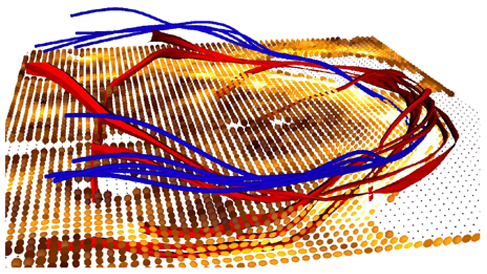
Speaker Biography
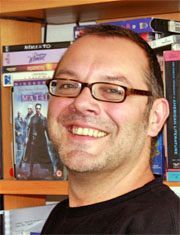
BERND HERZOGENRATH is professor of American literature and culture at Goethe University of Frankfurt/Main, Germany. He is the author of An Art of Desire. Reading Paul Auster (Rodopi 2001), An American Body|Politic: A Deleuzian Approach (Dartmouth College Press 2010) and editor of two books on Tod Browning, two books on Edgar G. Ulmer, and two books on Deleuze and Ecology. Other edited collections include The Farthest Place: The Music of John Luther Adams (Northeastern UP 2012), Time and History in Deleuze and Serres (Continuum 2012), and, most recently, media|matter (Bloomsbury 2014). At the moment, he is planning a project cinapses: thinking|film that brings together scholars from film studies, philosophy, and the neurosciences (members include Alva Noë and Antonio Damasio). Forthcoming publications include the edited collections sound thinking (Bloomsbury), The Films of Bill Morrison (Amsterdam University Press), and film and|as philosophy (University of Minnesota Press).
Please join us for a day of discussion on March 11, 2016.
University of Alberta, Arts-Based Research Studio (Education North 4-104)
Although the topic of the “Anthropocene” has become increasingly popular in both academic and public spheres, there remains a certain blindness to the ways in which our all-too-human regimes of representation have come to limit the ability to respond to the pressing issues facing the human species today. Such anthropocentric “blind spots” operate through the assumption that humans are at the height of the natural evolutionary progression of life, in turn producing hierarchies between different lifeforms, while also legitimizing attitudes of exploitation and profiteering of those non-human entities with whom we share the planet. This anthropocentric bias is difficult to point to, let alone question, precisely because such a bias often manifests itself in silence. It is within this site of silence, this hushed impasse, where we hope to make some noise. “Sounding the Anthropocene” is a one-day Symposium that will investigate both the material and conceptual attributes of sound — those reverberating, nonsignifying vibrations — as a mode for thinking the “Anthropocene” anew. The Symposium will include sessions with a diverse range of thinkers whose work with sound resonates through a variety of fields including musicology, education, art and performance, science fiction studies, and philosophy.
Schedule (Click the Links for Full Session Descriptions)
9:00-9:15 | Welcome
9:15-10:30 | Session 1: “In|human Rhythms” with Bernd Herzogenrath
11:00 – 12:30 | Session 2: “Sound Without Organs” with Jessie Beier and Jason Wallin
12:30-1:30 | LUNCH
1:30-3:30 | Session 3: “Soundscape Interventions” with Scott Smallwood
2:30-3:30 | Session 4: “The Meaning of Treedom: Mass Extinction and the Silent Things” with Sha LaBare
4:00-5:30 | SPECIAL SESSION: “All Things Considered: Immanence, Ecology and Education” with Distinguished Visiting Professor Dr. Hanjo Berressem
5:30- 8:00 Closing Reception
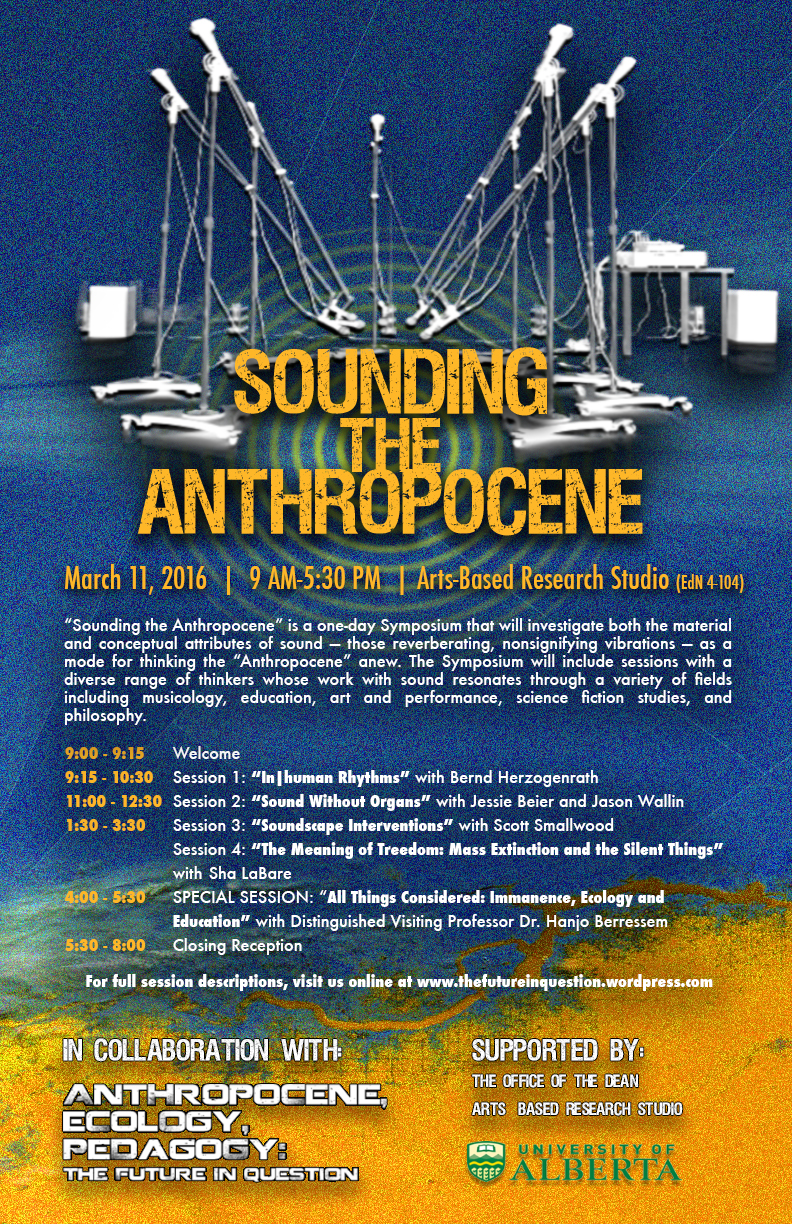
As a conclusion to the 2015/2106 Speaker Series “Anthropocene, Ecology, Pedagogy: The Future in Question”, curated by jan jagodzinski, we are pleased to announce a series of events taking place in March including a week-long lecture series and a day-long symposium.
Please find all of the details below and feel free to forward this information to any interested contacts! Looking forward to seeing you there!
“In Luce Ambulemus:” Light, Ecology and the Arts
A week-long lecture series with Distinguished Visiting Professor Hanjo Berressem.
Monday, March 7-Saturday, March 12
12-1:30 PM Daily (Except for Friday, March 11)
Arts-Based Research Studio (Ed. North 4-104)
FREE | OPEN TO ALL!

SAVE THE DATE :: We will be ending the series with a final week of thinking together, running from March 7-11. The week will feature a series of lunch-hour talks with visiting Distinguished Scholar, Prof. Dr. Hanjo Berressem (University of Cologne), followed by a final day-long symposium on Friday, March 11. The theme for the day will be ‘Sounding the Anthropocene’ and will feature several speakers, performances and a reception to follow. More details coming soon!
Next up in the series: “Intervals of Resistance: Being True to the Earth in Light of the Anthropocene” with Dr. Janae Sholtz, Associate Professor of Philosophy at Alvernia University and the Coordinator of the Women’s and Gender Studies Program.
Details: Friday, February 12, 12-1PM, Arts-Based Research Studio (Ed North 4-104).
“Intervals of Resistance: Being True to the Earth in Light of the Anthropocene”
Rather than abiding by the catastrophic or fatalistic visions that so often accompany the invocation of the Anthropocene, this presentation operates from the assumption that thinking the conditions of the anthropocene, where those conditions also necessitate the relinquishment of any Promethean aspirations of human technological overcoming of the Anthropocene, may present us the opportunity to imagine a different future and entirely new ways of inhabiting this planet. This presentation develops the need for an ontological shift in consciousness towards a new sensitivity to affective and intensive engagements as necessary pedagogical tools in our attempts to navigate the epoch of the Anthropocene. Influenced by the work of Deleuze and Guattari, this ontological shift is figured as a move from the earth to the cosmic, where the cosmic exposes the illusionary wholeness and substantiality that has undergirded our concept of the earth, and indicates the necessity of thinking through the indices of our modern era of capitalist deterritorialization in order to engage these processes in more productive directions. What is called for is the de-centering of our selves in order to be true to the earth. This is the potential that we want to explore. It would require (1) developing a sensitivity to the level of force and intensity by which the cosmic arises and operates – what I am going to call a sensibility to affect and immanence; and (2) the invention of practices and ways of being that allow for or precipitate this development – which I am going to explore through the invocation of the creative potential of art to produce an experience of the ontological level of the cosmic that then becomes the basis for a new philosophical thought, to infuse philosophy with affects that produce intervals and slowness. As Deleuze and Guattari imagine, this will become the work of the cosmic artisan, to reframe the indices of modernity, which is to say the powers revealed through Capitalist capture and proliferation of the cosmic, in an affirmative manner, and to produce new subjectivities that do not deny the present but do not succumb to it either.
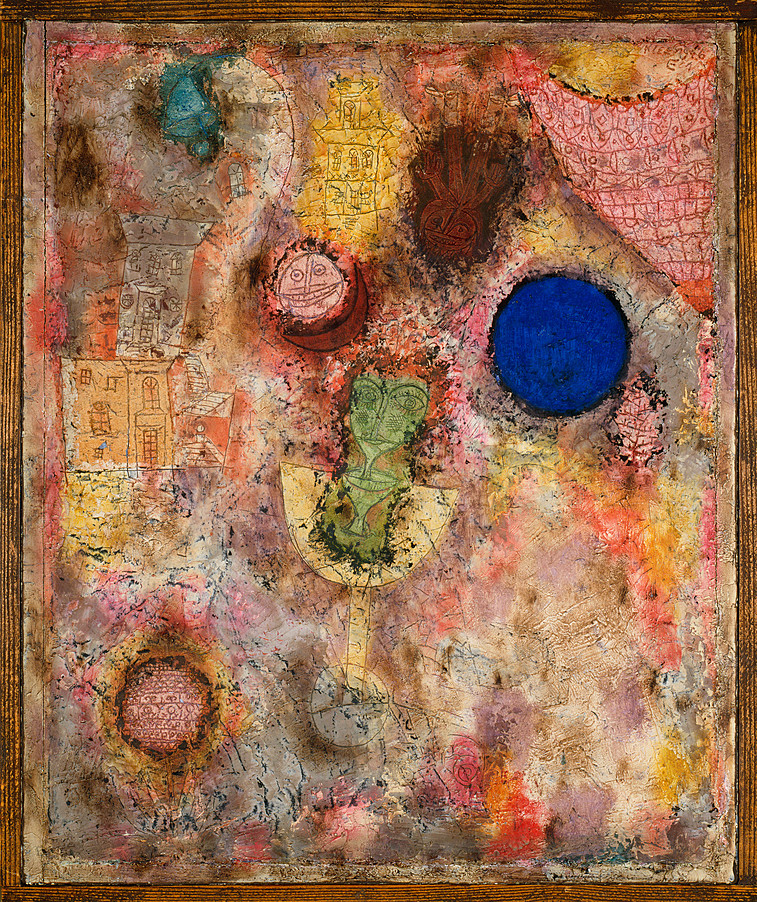
Speaker Information:
Dr. Janae Sholtz is Associate Professor of Philosophy at Alvernia University and the Coordinator of the Women’s and Gender Studies Program. She was recently awarded the prestigious Neag Scholar Award for excellence in teaching and research. She received her PhD from University of Memphis and MA from New School for Social Research. She is the author The Invention of a People, Heidegger and Deleuze on Art and the Political, Edinburgh Press (2015), in which she contemplates the potential for new political futures by re-conceptualizing ontology through the imaginative, creative paradigms opened through the aesthetic considerations of Heidegger and Deleuze. Her research focus is Twentieth Century and Contemporary Continental Philosophy, avant-garde art and Contemporary Aesthetics, and Feminist Theory. The intersectional aspect of her work is directed towards envisioning how different forms of expression and (aesthetic) activities generate new modes of thinking. Her current research interests include the structure of transgression, immanence as related to the ethics of the event, the influence of Stoicism in Deleuze’s philosophy, the intersection of art and the political, political ontology, and the potential of art as a form of resistance.